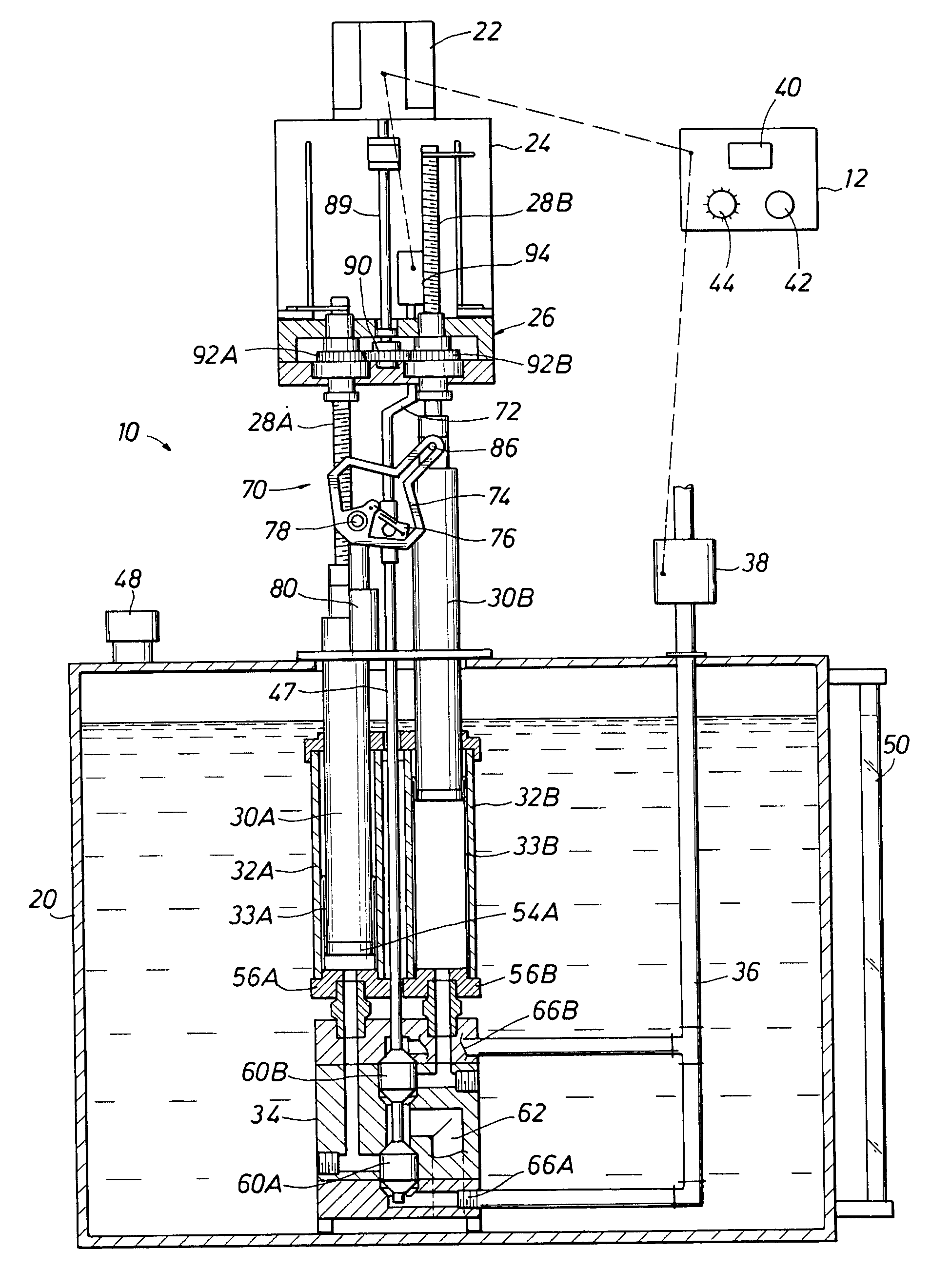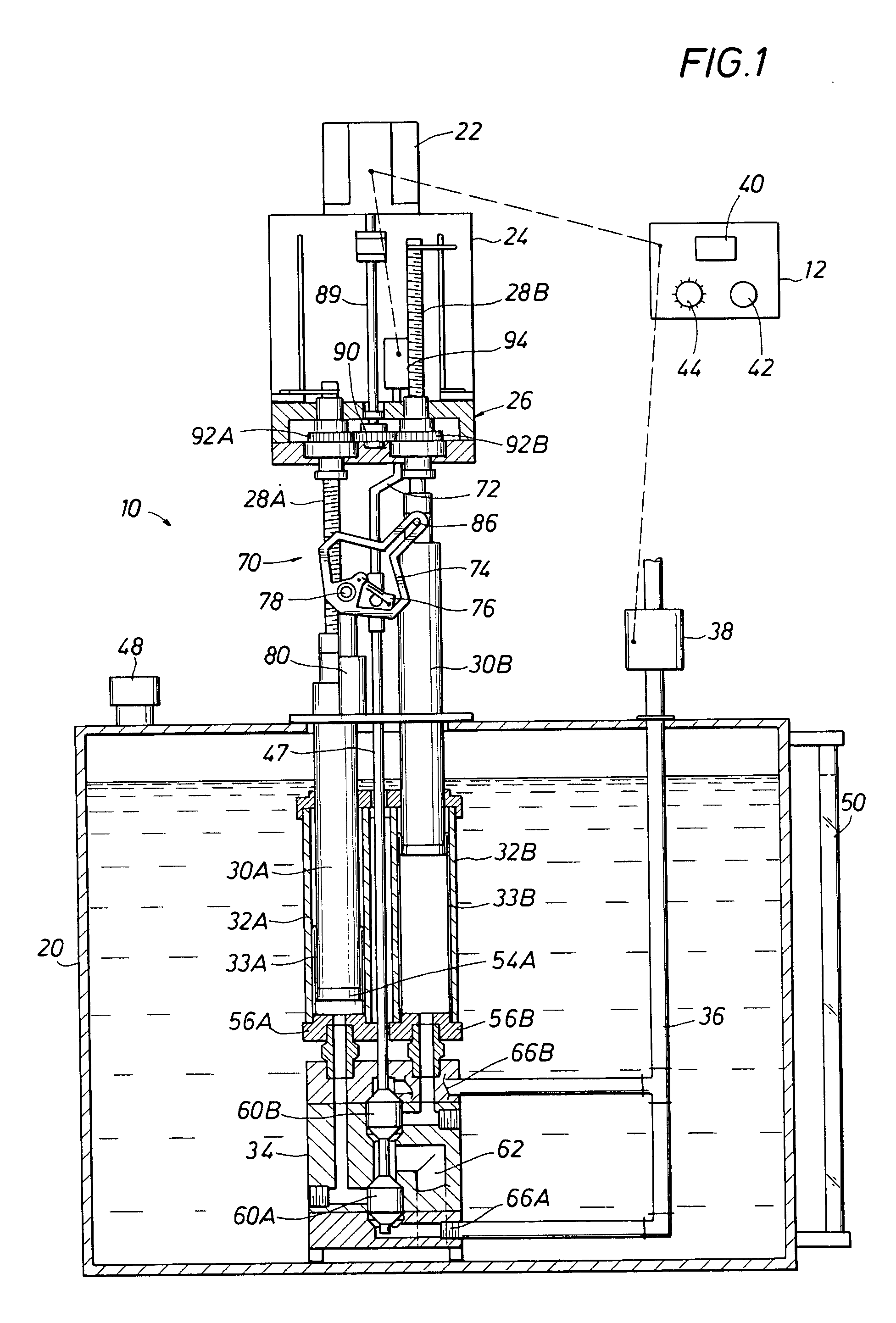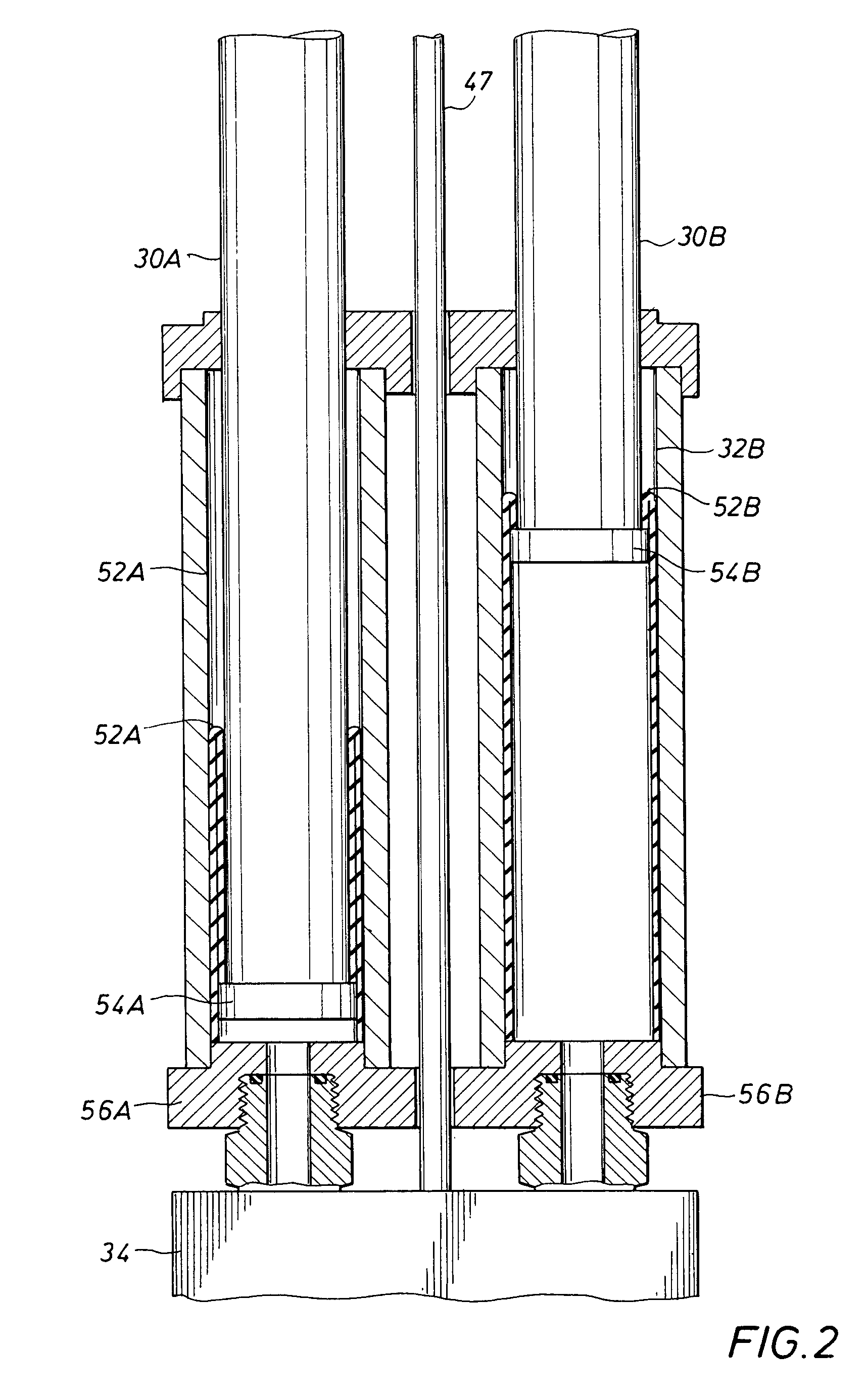Metering pump
a technology of metering pump and pump body, which is applied in the direction of pump, positive displacement liquid engine, liquid fuel engine, etc., can solve the problems of affecting the efficiency of the process, the cost of various chemicals that are blended or metered may be quite high, and the inability to inject intermittent pulses or slugs, etc., to achieve the effect of eliminating the loss of efficiency of prior valves
- Summary
- Abstract
- Description
- Claims
- Application Information
AI Technical Summary
Benefits of technology
Problems solved by technology
Method used
Image
Examples
Embodiment Construction
[0042] FIG. 1 illustrates a dual chamber metering pump 10 of the invention as assembled in a fluid tank 20. A 12 VDC stepping motor 22 is mounted on an enclosure 24 which contains a reversing switch mechanism 94. Motor 22 drives input shaft 89 and drive gear 90 of gear box 26. Gears 92A, 92B are driven at the same speed and direction of rotation by gear 90. Lead screws 28A and 28B are vertically driven by threads within gears 92A, 92B and move in opposite directions by virtue of opposite-hand threads. The lead screws 28A, 28B are secured to pistons 30A, 30B in chambers 32A, 32B, respectively, mounted on top of valve body 34. Tube tubular diaphragms 33A, 33B are coupled between the lower ends of pistons 30A, 30B and the lower ends of cylinders 32A, 32B to form a vapor-tight seal.
[0043] Motor 22, enclosure 24 and gearbox 26 form the driving (or dry) end of pump 10, and the cylinders 32A, 32B, pistons 30A, 30B and the valve body 34 located within tank 20 form the pumping (or wet) end. ...
PUM
 Login to View More
Login to View More Abstract
Description
Claims
Application Information
 Login to View More
Login to View More - R&D
- Intellectual Property
- Life Sciences
- Materials
- Tech Scout
- Unparalleled Data Quality
- Higher Quality Content
- 60% Fewer Hallucinations
Browse by: Latest US Patents, China's latest patents, Technical Efficacy Thesaurus, Application Domain, Technology Topic, Popular Technical Reports.
© 2025 PatSnap. All rights reserved.Legal|Privacy policy|Modern Slavery Act Transparency Statement|Sitemap|About US| Contact US: help@patsnap.com



